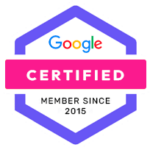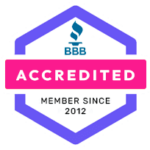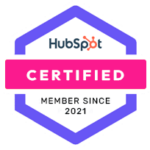No products in the cart.
How to Use Local SEO to Drive More Customers to Your Business

Why Local SEO is Essential
If you’re a small business owner, chances are your success depends on the support of your local community. But how do you ensure that nearby customers find you before your competitors? The answer lies in local SEO.
Local SEO (Search Engine Optimization) is all about making your business more visible in local search results. Whether customers are searching for “best pizza near me” or “local accounting services,” a strong local SEO strategy ensures that your business shows up when and where it matters most.
In this guide, we’ll walk you through the essentials of local SEO and provide actionable steps to help you rank higher, attract more customers, and grow your business.
The Basics of Local SEO and Why It Matters
Local SEO focuses on optimizing your online presence to attract customers within a specific geographic area. Unlike general SEO, which targets global or national audiences, local SEO is laser-focused on nearby customers.
Why Local SEO Matters:
- Increased Visibility: 46% of all Google searches are for local information. If your business isn’t optimized for local search, you’re missing out.
- More Foot Traffic: Studies show that 76% of people who search for something nearby visit a business within a day.
- Higher Conversions: Local searches often have strong intent—customers are actively looking for a product or service to buy.
For family-run businesses or busy owners juggling work and family life, local SEO can be a game-changer. It helps you reach customers who are already looking for what you offer, saving you time and effort.
How to Optimize Your Website for Local Search
Your website is the foundation of your local SEO efforts. Here’s how to ensure it’s optimized for local search:
Key Tips:
- Include Local Keywords: Use keywords that include your city, neighborhood, or region (e.g., “plumber in Austin” or “family bakery in downtown Portland”) in your website content.
- Add a Location-Specific Page: Create a dedicated page for each location if your business operates in multiple areas.
- Embed a Google Map: Add a map of your location to your website’s contact page to make it easier for customers to find you.
- Optimize Meta Tags: Include local keywords in your title tags, meta descriptions, and headers.
Pro Tip: Test your website’s speed and mobile responsiveness using tools like Google PageSpeed Insights. A fast, mobile-friendly website improves user experience and helps you rank higher in local searches.
Building Citations and Getting Listed in Local Directories
Citations are mentions of your business name, address, and phone number (NAP) on other websites, such as local directories and review sites. Consistent citations across the web improve your local search rankings.
Key Steps to Build Citations:
- Submit to Directories: List your business on platforms like Yelp, Yellow Pages, Bing Places, and TripAdvisor.
- Claim Your Google Business Profile: Make sure your profile is fully optimized with accurate and up-to-date information.
- Keep NAP Information Consistent: Ensure your business name, address, and phone number are identical across all platforms.
Why It Matters: Accurate citations signal to search engines that your business is legitimate and trustworthy, boosting your chances of ranking higher in local search results.
The Importance of Reviews and How to Encourage Customers to Leave Them
Online reviews are critical for local SEO. Not only do they help build trust with potential customers, but they also influence your search rankings.
How to Get More Reviews:
- Ask at the Right Time: After a successful purchase or service, ask customers to leave a review.
- Make It Easy: Provide a direct link to your Google Business Profile or Yelp page in your emails or receipts.
- Offer Incentives: Encourage reviews by offering small discounts or freebies for honest feedback (but check platform policies first).
- Respond to Reviews: Thank customers for positive reviews and address negative ones professionally.
Pro Tip: Reviews with keywords (e.g., “best bakery in Denver”) can also help boost your local SEO.
Tracking and Improving Your Local SEO Performance
Once you’ve implemented local SEO strategies, it’s important to monitor your progress and adjust as needed. Here are the tools and metrics to track:
Key Tools:
- Google Analytics: Measure website traffic, track user behavior, and see how visitors are finding your business.
- Google Business Profile Insights: Track how many people are finding your profile, calling your business, or requesting directions.
- Moz Local or BrightLocal: Monitor your local search rankings.
Key Metrics to Watch:
- Website traffic from local searches.
- Calls, directions, and website visits from your Google Business Profile.
- The number and quality of customer reviews.
Pro Tip: Regularly update your website and Google Business Profile with new content, photos, and promotions to keep your local SEO fresh and effective.
Final Thoughts
Local SEO is one of the most effective ways to attract nearby customers and grow your business. By optimizing your website, building citations, encouraging reviews, and tracking your progress, you can ensure your business is visible when local customers are searching for the products or services you offer.
The best part? Local SEO doesn’t require a massive budget or a ton of time. With consistent effort and the right strategies, you can attract more customers, increase sales, and even free up time to focus on other priorities—like spending time with your family or growing your business in new ways.
📞 Need Help with Local SEO? Call us at 631-637-2772 or email us at success@heartcoregrowth.com to learn how we can help optimize your local search presence and drive more customers to your business.
People Also Ask
- Q: What is local SEO?
A: Local SEO is the practice of optimizing your online presence to attract customers within a specific geographic area. - Q: How can I improve my local SEO?
A: Optimize your website with local keywords, claim your Google Business Profile, and encourage customer reviews. - Q: Why are reviews important for local SEO?
A: Reviews build trust with customers and influence your rankings in local search results. - Q: What tools can I use to track local SEO performance?
A: Google Analytics, Google Business Profile Insights, and Moz Local are popular tools for tracking local SEO metrics.









